|
Development of Professional Competencies through Distance Mode: An Analysis on the Programme Components of IGNOU
Dr. Sitansu Sekhar Jena
IGNOU
Abstract
An attempt has been made in this paper to analyze the Programme component of selected professional programmes offered by the Indira Gandhi National Open University (IGNOU) to assess the extent of their effectiveness in developing professional competencies required for the respective professions. These competencies centers around not only the attitudinal changes for the professions in which the professional are engaged/ aught to be engaged, but also enable them to understand the profession deeply and adopt themselves to the working environment to contribute significantly for the organization as well as for national development. The comparative analysis is based on six broad areas of competencies related to any profession, such as: (i) contextual competencies, (ii) conceptual competencies, (iii) curricular related competencies, (iv) competencies on learning outcome, (v) competencies on management of profession, and (vi) competencies in understanding own environment.
Five Professional Programmes at the level of post graduation, having significant demands for admissions, have been selected for the purpose of analysis covering varied professions. It has been observed that the Programme objectives, the content structure, the transaction mode and the components related to assessment mostly commensurate with achieving the broad professional competencies as enumerated above. Since most of the professionals join these programmes having certain basic knowledge on their respective professions, they are in an advantageous situation to pick up/ refresh those competencies, which are essential and immensely helpful to discharge their duties efficiently and effectively.
Untitled Document
1.0 Defining Profession:
In developing countries, specifically in the context o f India, the need for
professional education has been gaining importance. Over the last decade due
to the industrialization there has been constant demand on quality professionals
in various sectors of professions, both in India and overseas. This has directly
contributed to the quality of life, positive use of human potential, empowerment
of individual and growth with excellence. If these are the objectives set by
professionals, how one would define profession? In a materialistic society,
some would say a profession is defined by “money”, others relates
with “status”. Still others suggest that a profession holds “special
knowledge and abilities”. In other word, somebody could be designated
as professional who knows exactly what need to be done with complete interest
and commitment. As been observed, during the period of pre-industrial revolution,
a profession was mostly linked to social status rather than performance of useful
work. During the industrial revolution, the professions came to be strongly
focused instead on specialized knowledge and the ability to perform the related
tasks (Curtis, 2000).
David Ozar and David Sokol (2002) while defining profession expressed that
an profession has certain characteristics (i) its practitioners have education
beyond the ordinary, both theoretical and practical; (ii) its particular expertise
is a source of benefit for those who seeks its assistance; (iii) the profession’s
expertise allows its practitioners extensive autonomy in matter pertaining to
it; and (iv) professional accept that they have special obligations.
Paul Rowbottom (2000) enumerated six characteristics for the recognition of
a profession. These are (i) a body of knowledge, (ii) which has practical application
(technology); (iii) “exclusive competence”, that is, the knowledge
and technology are too complicated to be employed by the laity; (iv) the profession
must develop and transmit its own knowledge; (v) practitioners accept a service
ethic, and (vi) the profession controls the entry of its members.
The most appropriate definition given to a profession in the present socio-cultural
context could be of Alvin Rosenblum(2001) as (i) education beyond the usual
level, to continue for life, (ii) self-regulation; (iii) technical competence
for which one is held morally responsible; (iv) self improvement and (v) service
to humanity. Hence for a professional there has been a growing need to update
knowledge and learn such professional skills to discharge both organizational
and social responsibilities effectively. Perhaps with these objectives many
of the professional programmes have been designed by the Indira Gandhi National
Open University (IGNOU) to meet the growing demands of the professional education
in the country.
2.0 IGNOU - Mission and Vision:
The Indira Gandhi National Open University (IGNOU), one of the mega Universities
in the world, was established by an Act of Indian Parliament in 1985. At present
the University is offering more than 125 academic programmes and having around
1000 courses. It serves the educational aspirations of about 1.5 million learners
not only in India but also in 30 countries across the world. Besides providing
education globally through Open and Distance Learning (ODL) with extensive use
of Information and Communication Technology (ICT), IGNOU has the additional
responsibility to promote, determine and maintain standards in ODL system across
the country. The vision and mission of the University gets reformulated from
time to time keeping in view to achieve the objectives of the University which
primarily focused on widening access with equality of opportunity and providing
for continuing professional development and training in all sectors of economy
and cater education to all cross-sections of society.
At present, the priority of the University is to act as the National Resource
Centre for Open and Distance Learning with wider international recognition.
It shall provide seamless access to sustainable and learner-centric quality
education, skill up gradation and training to all by using innovative technologies
and methodologies and ensuring convergence of existing systems for massive human
resources required for promoting integrated national development and global
understanding (IGNOU Profile 2006). Hence over the period of time, the emphasis
has been laid on launching of more professional, vocational, awareness generating
and non-credited extension and skill oriented programmes with a focus on socio-economic
development and serving the disadvantaged section of the society. To have sustainable
curricular transaction system, the University provides multi-channel multiple
media teaching-learning packages for instruction.
3.0 Professional Programme of IGNOU:
As been mentioned before, since beginning, the University has focused on a
diversified target groups with objective to train such manpower and upgrade
the skill of those who could effectively participate in the socio-economic development
of the country. Keeping in view the growth of economy through its vision and
mission, of late, attempts have been made to launch more professional and vocational
programme to meet the growing demand of the market force. Apart from this the
re-training and up gradation of skills of the professional working in various
sectors - be agriculture, industries, engineering, health, law, education (Pre-Primary
to higher education), etc. have been emerged as major focused group. As one
observes the type and nature of programmes offered by the University presently,
most of them either fall in the category of professional education or vocational
areas. It is, therefore, thought appropriate to examine and undertake an analysis
on the programme components in relation to development of professional competencies,
and how those are being addressed in certain selected programmes. The following
programmes are selected for the purpose of much analysis:
i) Master of Business Administration (MBA).
ii) Master of Computer Application (MCA).
iii) Master’s Degree Programme in Library and Information Science (MLISc)
iv) Post Graduate Diploma in Maternal and Child Health (PGDMCH)
v) Bachelor of Education (B. Ed)
Even though the selection of Programmes are of deliberate one, but following
criteria have been followed while selecting the same:
i) The Programmes are from the varied areas of study i.e. Management, Computers,
Library Sciences, Health and Teacher Education.
ii) All programmes are basically targeted for the wider professional groups,
and in the context of the University there has been good demand for these programmes.
iii) The minimum qualification laid for admission to these programmes basically
a graduate from the relevant areas of studies and thereby all programmes are
at the level of Post Graduation.
iv) The target groups have certain back ground experience on their respective
professions and thereby have certain exposure to the professional environment.
The following Table-1 gives a comparative and brief outline on the programme
components:
TABLE – 1: COMPARATIVE STATUS ON THE PROGRAMME COMPONENTS
Sl. No. |
Program
Components(1)
|
MBA
(2)
|
MCA
(3)
|
MLISc.
(4)
|
PGDMCH
(5)
|
B.ED.
(6)
|
| 1 |
Target Groups |
Executives/ Supervisors/ Professional Degree holders/Post Graduates |
Computer Professionals/ Computer Professional degree holders/ other Professional
degree holders and Science Postgraduates |
Library Science degree holders with working experience in library |
Doctors with MBBS degree |
Graduates and working as teachers in Schools having two years teaching
experience |
| 2 |
Age |
No Bar |
No Bar |
No Bar |
No Bar |
No Bar |
| 3 |
Duration of the Programme |
Minimum: 5 semesters
Maximum: No time bar
|
Minimum: 3 years
Maximum: 6 years
|
Minimum: 1 year
Maximum: 4 years
|
Minimum: 1 year
Maximum: 3 years
|
Minimum: 2 years
Maximum: 4 years
|
| 4 |
Admission |
Entrance Test |
Open Admission |
Open Admission |
Screening through the qualifying Examination and Experience |
Entrance Test, qualification and experience. |
| 5 |
Objectives of the Programme |
- Update the knowledge base of the professionals on aspects related to
management function of the organization
- Develop such competencies through which one could solve organizational
problems.
|
- Prepare professionals for an enriching career in present software industries.
- Updates professionals to solve their Mathematical, computing, communications/networking
and commercial problems.
- Provide necessary training relevant to the latest computer software development.
|
- Develop such professional competencies those are needed to manage libraries
in systematic and scientific manner.
- Enables one to provide needed knowledge in information areas, management
of library and information centres.
|
- Imbibe comprehensive knowledge in ongoing Maternal and Child Health
Programmes.
- Tackle disease outbreaks and effective management of MCH Services.
- Provide antenatal care.
- Provide family planning services.
- Manage common childhood morbidity.
- Intensive counseling on nutritional needs.
|
- Strengthen professional competencies of teachers.
- Develop better understanding on organizing learning experiences.
- Develop such skills needed to solve learners’ problems.
- Develop skills involved in selecting, developing and using evaluation
tools.
- Develop competencies for organizing various instructional and student
support activities.
|
| 6 |
Delivery Channel |
Multi-media approach to learning
+
Group Discussion
+
Project work
|
Multi-media approach to learning
+
Hands on Training
+
Project work
|
Multi-media approach to learning
+
Hands on Training (limited)
+
Seminar presentation
|
Multi-media approach to learning
+
Hands on Training
+
Internship
|
Multi-media approaches to learning
+
School based practical
+
Workshop based practical
+
Practice teaching
|
| 7 |
Evaluation Mechanism |
- Terminal Exam.
-Continuous evaluation
- Project assessment
|
-Terminal Exam.
(Theory & Practical)
-Continuous evaluation
- Project assessment
|
- Terminal Exam.
(Theory)
-Continuous evaluation
|
-Terminal Exam.
(Theory)
-Terminal Exam. (Practical) -Continuous evaluation
|
-Terminal Exam.
(Theory)
-Continuous evaluation
-Evaluation on Practical activities.
|
In distance education context, the transaction mode plays very important role
in acquiring new knowledge and demonstrating the same in a given situation.
For acquiring professional skills using distance methodology, the channels of
delivery of curricular inputs and application of new knowledge has greater importance.
For the professional programmes of IGNOU, it follows multi-channel multi-media
teaching learning packages for instruction. The Figures (1-5) enclosed at Annexure
gives a comprehensive picture on the delivery of programmes.
4.0 Inputs for Professional Competencies:
Development of professional competencies has been a crucial focus on all these
professional programmes. These competencies center not only the aspects related
to attitudinal changes for the professions in which one is associated/ought
to be associated, but also enable him/her to understand the profession deeply
and adapt to the working environment. The competencies are positively associated
with the performance areas. For the purpose of analysis the following broad
areas of competencies have been considered. These are:
i) Contextual Competencies: To provide a wider view of the development of professional
education in society and professionals’ role in it.
ii) Conceptual competencies: Understanding basic talents of one’s own
profession.
iii) Curricular related competencies: Knowledge inputs through curricular base
and its transaction.
iv) Competencies on learning outcome: Feedback mechanism in relation to assessing
the competencies acquired.
v) Competencies on Management of Profession: Abilities to organize activities
in professional set up.
vi) Competencies in understanding own environment: Internal acceptance of roles
and responsibilities.
Let us now examine how far these competency areas are broadly linked with the
programme components, which are enumerated in a comparative presentation through
the Table-2 as below:
TABLE - 2: COMPARATIVE ANALYSIS ON COMPETENCY AREAS ACROSS THE FIVE PROFESSIONAL
PROGRAMMES OF IGNOU:
Sl. No. |
Competencies (1) |
MBA
(2)
|
MCA
(3)
|
MLISc
(4)
|
PGDMCH
(5)
|
B.ED.
(6) |
| 1 |
Contextual Competencies |
- Dealing with core components such as: management function and behaviours,
economic and social environment and strategic management. -Specialised
orientation on Human resources, finance, operation and marketing.
- Application of knowledge. |
-Preparing graduates for a career in software industries.
-Updating knowledge on latest computer software development.
- Skill development in using computers for problem solving.
|
- Skills related to training manpower for effective management of library
and information centres.
- Ability to store information using modern Information Technology.
|
- Comprehen-sive knowledge on the areas of Pediatrics, obstetrics and
community medicine for implementation of effective Maternal and Child Health
Programmes.
- Updating knowledge and skills of doctors on MCH care.
|
-Developing understanding on teaching-learning process at secondary stage.
-Updating such competencies to deal with teaching-learning process in Schools.
|
| 2 |
Conceptual Competencies |
Courses broadly offered in the areas of :
- Human Resource
- Accounting and Finance
- Material management
- Marketing
- Information system for Managers
-Organizational Development
- Specialized courses.
|
Courses broadly offered in the areas of:
- Problem solving and programming
- Data base management system
- System Analysis
-Object Oriented Technologies & Analysis
- Software Engineering
-Data Communication and Computer network.
Management of Information system.
-Application of Knowledge
|
Courses broadly offered in the areas of:
- Communica-tion and Information Society.
- Information System.
- Information processing and retrieval.
- Management of library and information centres.
- Application of Information Technology and its use.
|
Courses broadly offered in the areas of three broad disciplines such as:
(i) Preventive and Social Medicine
(ii) Obstetrics and Gynecology &
(iii) Pediatrics
|
Courses broadly offered in the areas of:
- Understand-ing children
- Curriculum and their transaction
- Evaluation techniques.
- Understand-ing society and |
| 3 |
Curricular related competencies |
Knowledge inputs from 11 core courses,
05 courses from one specialized streams,
04 integrative courses with three compulsory and one elective, and
project work equivalent to two courses.
All these courses cover the comprehensive areas of a management professional.
|
In total 31 courses are being offered and these are relevant to latest
computer software development. In total 21 theory courses, 06 practical
courses, one course from the stream of specialization and one course related
to project work, enriching the student through web based support. |
The inputs for the programme comprises 08 courses out of which six are
core devoted to information areas, management of libraries and information
centres using information technology.
Two elective courses are designed to impart specific skills required in
a particular type of libraries.
|
The curricular input for the programme is related to six core courses
from three distinct disciplines. Every theory course has related practical
inputs. The students are guided to undertake certain hands on training on
these discipline based professional areas.
- Small group activities.
|
The curricular input comprises five core courses, two courses from the
content-based methodology courses and one special course. All these courses
are targeted to enhance specific competencies related to teaching-learning
process. This apart, the students are exposed to three areas of practical
activities related to school based and workshop based activities, and practice
teaching in school subjects. |
| 4 |
Competencies on learning outcome |
Understanding on the subject areas through continuous evaluation i.e.
primarily assignments. All these assignments are mostly practical in nature
and learners are to undertake case studies.
Application of acquired knowledge through the project work has significant
implications in the context.
|
Continuous evaluation through practical oriented assignments which are
mostly linked to understand the analytical ability of the learners.
Assessment through practical lab work.
Assessment through practical examinations.
Understanding application of knowledge through project work.
|
Continuous evaluation through practical oriented assignments
Seminar presentation and group discussions
Assessing abilities on the exposure to the Information Technology. |
Continuous evaluation through theoretical and practical assignments.
Assessment through practical examination on aspects related to hands
on training.
Verification of records and logbook.
|
Assessment through practical oriented assignments
Assessment records submitted by the Supervisor, Mentors and Headmaster
of the Schools.
Verification of records related to school based and workshop based activities.
Scrutiny of practice teaching records.
|
| 5 |
Competenc-ies on Management of Profession |
Abilities to understand the profession. Abilities to manage human and
material resources.
Effective participation in decision-making process.
Analysing interpersonal relationships.
Data collection and analysis.
(Many more such other activities associated with the profession.)
|
Problem solving mechanisms
Identify the software projects.
Plan and design MIS
Produce WebPages
Describe features of network administrators.
Demonstrate database mining and warehousing.
|
Describe information generation and communications.
Identifies the source of information, institutions, products and services.
Ability to preserve and conserve library materials.
Effective management of library and information centres.
|
Identifying the common problems of epidemiology in Maternal and Child
Health.
Understanding the reproduc-tive and child health.
Organizing primary pediatric care
Management of hospitals and MCH care.
|
Understanding school children and their problems.
Identifying relevant instructional system and its planning.
Undertaking evaluation in teaching-learning process
Understanding various issues related school structure and its relation
to the society.
Demonstrating the teaching of subject-specific content in the classroom.
|
| 6 |
Competencies in understanding own environment |
Commitment for the organization.
Acceptance of responsibilities.
Performing higher tasks
|
Commitment to achieve the target as specified and goals of the organization |
Effective management of libraries and information centres with commitment
to store information. |
Effective implementation of Health Care Services.
Organization of antenatal care in the hospitals
|
Understanding school environment
Promoting effective classroom learning.
|
From the above mentioned Table – 2 the following conclusions could be
inferred on the analysis :
i). The programme goals and objectives mostly commensurate with training of
professionals in acquiring contextual competencies enrolled in the programmes
like MBA, MLISc, PGDMCH and B.Ed. in more specific terms. While for MCA professionals,
the same has been construed in a narrower perspective, as the training is oriented
only for the specific jobs as enumerated by the software industries.
ii) As regard to the conceptual competencies, the professionals under MBA programme
are expected to get specialized in one of the areas of operations of the industries/organization/institution.
Whereas, in the programmes such as MLISc, PGDMCH and B.Ed., the focus is on
to get orientation on the holistic aspects of the professions. However, in MCA
the conceptual aspect is more towards understanding the professional requirement
of the software industries.
iii) In almost all programmes, the rationale related to the Programme structure
and inputs for the course contents represents the comprehensive understanding
on one’s area of operation. Accordingly, adequate content inputs have
been planned and designed scientifically for each of the courses. As one examines
on the components related to transaction strategies, which are focused on the
multi-channel multi media approaches of learning, the same have been planned
keeping in view the requirement of the competencies to be acquired by the professionals.
Though the transaction strategies broadly remain the same for all programmes,
but depending on the typical nature of the professional requirements the additional
inputs have been planned. For example: in B.Ed. programme the concept related
to school based activities to be undertaken by the professionals, with the students
of the classrooms, gives an ample scope to understand the teaching profession.
Similarly, the hands on training by the doctors in PGDMCH programme at the Skill
Development Centres raises the confidence level of the professionals.
iv) The University follows uniformity procedure for assessment of learners’
performance – both continuous and terminal. Accordingly, the outcome of
the learners are measured and rated. However, the feedback mechanism adopted
in the context of continuous evaluation process is a kind of unique experience.
The professionals attached to the programmes like MCA, PGDMCH and B.Ed. is continuously
assessed and enriched through their respective practical sessions.
v) The professionals of MBA Programme are in an advantageous position, as compared
to others, as regard to capabilities in organizing activities in one’s
professional set up is concerned. The curricular input in this programme exposes
them to varied conditions of professional set ups through case studies, which
is one of the effective methods of curricular transaction. To some extent the
PGDMCH programme focuses on this strategy of curricular presentation. But this
is not so prominent in other programmes as well. However, since the professionals
are exposed to the working conditions, be a classroom in a school or the computer
lab of a software industry, they acquire the required competencies on managing
their own professional set ups.
vi) In all programmes, sufficiently orientation is given to the learners to
develop positive attitude towards their respective professions. The Programmes
emphasise on the internal acceptance of the roles and responsibilities by the
professionals and thereby enhancing their commitment towards this.
5.0 Conclusion:
As been observed above, the planning, development and implementation of the
above mentioned professional programmes suit to the varied needs of the professionals
and effectively support them for up gradation of their professional competencies
as enumerated through the programme components. The programmes not only helps
in bringing attitudinal changes of the professionals, but also enable them to
understand the profession deeply, help in enhancing commitment to the profession
and adopt to the working environment to contribute significantly for the institution/organization
as well as for national development.
6.0 References:
- Alvin B. Rosenblum, DDS (2001) “Ethics competencies in the Business
of Detistry” Journal of the California Dental Association, March, 2001.
- Curtis, Erik K (2000); “Defining a Profession” in Journal of
the Arizona Dental Association, 14(12): 5 June 2000.
- David J. Sokol and David T. Ozar (2002) “Dental Ethics at Chairside:
Professional Principles and Practical Applications” Elsevier Science
Health Sciences Division.
- Indira Gandhi National Open University (IGNOU) Profile 2006: New Delhi:
IGNOU, 2006.
- IGNOU (2006) “Student Handbook and Prospectus: Management Programme”
New Delhi; School of Management Studies, IGNOU.
- IGNOU (2006) “Programme Guide for Master of Computer Applications”,
New Delhi: School of Computer and Information Sciences, IGNOU.
- IGNOU (2006) “Programme Guide for Master’s Degree Programme
in Library and Information Sciences (MLISc)”, New Delhi: School of Social
Sciences, IGNOU.
- IGNOU (2006) “Programme Guide: PGDMCH” New Delhi: School of
Health Sciences, IGNOU.
- IGNOU (2006) “Bachelor of education Programme Guide January 2006”,
New Delhi: School of Education, IGNOU.
- Paul Rowbottom (2000) in Curtis, Erik K “Defining a Profession”
Journal of Arizona Dental Association 14(12): 5, June 2000.
Figures
Fig 1: PROGRAMME DELIVERY MP PROGRAMME
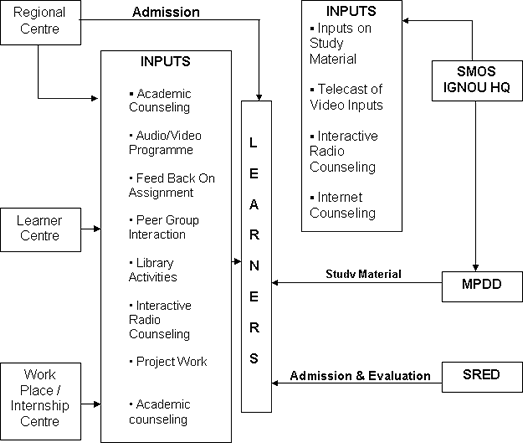
Fig 2: PROGRAMME DELIVERY MCA PROGRAMME
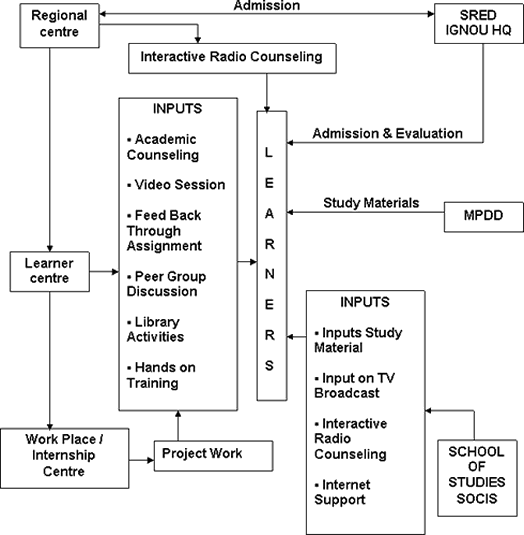
Fig 3: PROGRAMME DELIVERY MLISc PROGRAMME
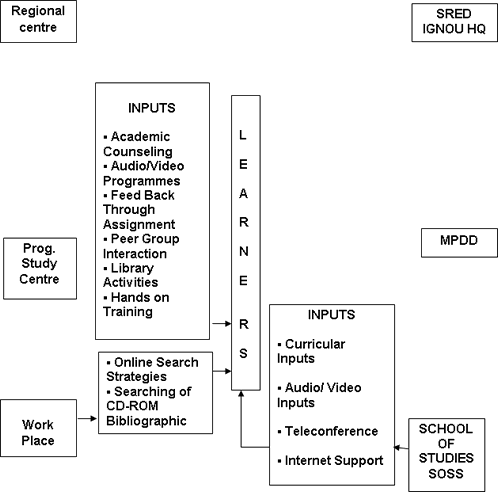
Fig 4: PROGRAMME DELIVERY PGDMCH PROGRAMME
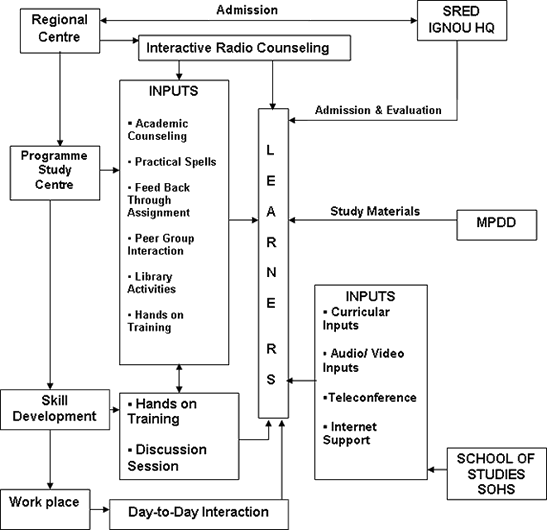
Fig 5: PROGRAMME DELIVERY B.Ed. PROGRAMME
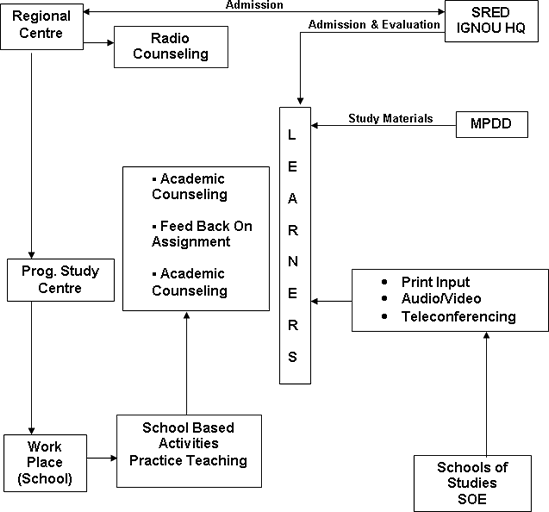
|
 |
Learn more
about this
publishing
project...
|
|

